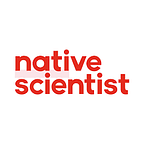Science outreach: is it taking time off work?
Author: Joana Moscoso
According to the Wellcome Trust report on factors affecting public engagement, there has been a significant shift in attitudes towards public engagement by scientists, who increasingly value science outreach. Yet, according to the same report, the number of science students and professionals doing public engagement or education outreach has increased very little in comparison.
The most common roadblock identified by scientists regarding practicing more public engagement is the lack of time (mentioned by 61% of the respondents of the survey reported above) and the need to take time off work to do it (mentioned as “the biggest challenge faced” by 30% of the scientists participating in Native Scientist outreach workshops for children). But are we really taking time off work when doing science outreach?
What does it mean to do regular science outreach activities? Perhaps it could mean spending one day every three months to prepare materials and participate in an initiative like a science festival or an open day at a research institute. Or a couple of hours every month sharing your work in a science outreach project that targets an audience you really care about or that has a mission and format that you connect with (such as Native Scientist, Pint of Science, Lecturers without Borders, Soapbox Science, Letters to a Pre-Scientist or Cartas com Ciência). Or perhaps it means spending four days per year engaging students in a science summer camp.
My understanding is that science outreach should not be perceived as something to be done outside normal working hours or as a hobby of extracurricular interest. I believe that dedicating a few hours per month to public engagement and science outreach should be viewed as a natural element of our work as scientists. Why? Because practicing public engagement and science outreach has multiple benefits and makes sense for a number of reasons. Here is a list of those:
1. Science outreach is good for us as individuals as it helps us to reconnect with why we chose to become a scientist and often gives us a sense of purpose and fulfillment.
2. Science outreach is good for us as professionals as it helps improve communication skills and gives us access to insights and perspectives about our work and science in general that we might not otherwise be able to access.
3. It helps combat stereotypes that scientists are white middle-aged unapproachable men, that science is difficult, and that science is for geniuses.
4. It can help debunk misinformation, restore public trust on contentious topics, and influence decision-making and governmental policies.
5. It fosters the learning of the scientific method and a positive attitude towards science in general, encouraging individuals to feel closer to science or even to pursue a career in science. In science outreach activities, scientists can act as role-models for a more literate, inclusive, and tolerant society.
So, if you are battling on whether to engage in a science outreach opportunity or not, or on how to tell your supervisor you want to do outreach, consider explaining to them why you want to do it, how much time it requires, and how you plan to do it. Most supervisors are now used to having to write “Impact” sections and “Communications Plans” in grant proposals, so even those who may not seem to care much about science outreach, might well be aware of its growing relevance.
I thus call for all of us to stand for public engagement and science outreach as a practice that is mutually enhancing for the practitioners of the activities and the audiences being targeted.
About the author: Joana believes in science and innovation for the benefit of humankind. This is what led her to become a scientist and an entrepreneur. Joana co-founded two companies and works in a deep tech company. At Native Scientist, a non-profit, scientists help migrant children access more and better science and language education. At Chaperone, an online marketplace, scientists access online quality and personalised career support. At Smart Separations, Joana helps bring to the market micro and nanotechnologies that improve quality of life. She has a PhD from Imperial College London and has been recognised as an MIT Innovator Under 35. Joana loves spending time with friends and food. She dreams of having her own restaurant one day.
About Native Scientist: Native Scientist is an award-winning European-wide non-profit organisation that promotes cultural diversity in science, education and society. Native Scientist provides science and language workshops, science communication training, and bespoke projects for various institutions, including schools, universities and embassies. The work developed connects pupils with scientists to foster science and language literacy through role modelling and science and language integrated learning. Founded in 2013, their work reaches over 1,200 pupils a year and they count with a network of over 1,000 international scientists.
